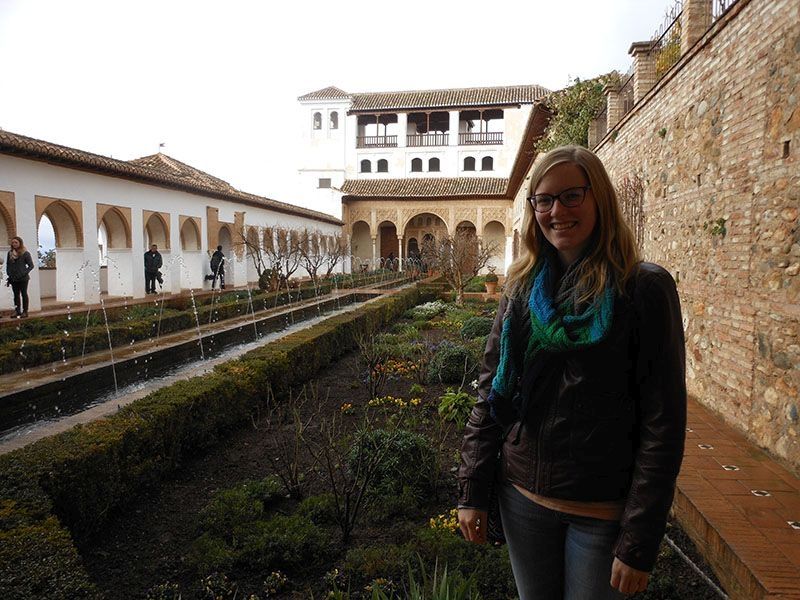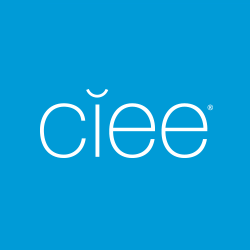How to Impress Employers With Your Study Abroad Experience
This post is written by CIEE alumna Marcie Waters. Marcie studied abroad with CIEE in Seville, Spain in 2014. She is currently studying art and communications at the University of Wisconsin-Madison. This post was originally published on the UW-Madison L&S Career Services blog.
How to Impress Employers With Your Study Abroad Experience
More and more students are taking advantage of opportunities to study, intern, and volunteer abroad. These are often impactful and meaningful experiences that stay in their minds for a long time afterwards (over a year later, I’m still driving people crazy by telling them how great Seville is). What not every student realizes, however, is that a study abroad experience is a great asset to the job hunt. In an increasingly global business world, cultural competency is a necessary skill, and an experience like studying abroad provides many talking points to show off that skill and more. If you’re unsure whether you’ve gained cultural competency from your time abroad, consider that a person who has cultural competency values differences, is responsive to diversity, understands the importance of culture in interpersonal interactions, and promotes quality cross-cultural interactions.
If you’re not sure what other skills you many have gained from studying abroad, think about these:
- Communication Skills: Did you learn/improve foreign language skills? Did you participate in group discussions with people from diverse backgrounds? Did you communicate with others in stressful or challenging situations?
- Organizational Skills: Did you successfully juggle multiple demands? Did you have to prioritize? Did you better your time management skills?
- Interpersonal Skills: Did your appreciation of diversity or cultural awareness increase? Are you now more open to differences, new ideas, and other perspectives? Did you learn to be sensitive to cultural customs and norms?
- Intrapersonal Skills: Did you take initiative and risks? Did you have to learn to adapt quickly? Did you handle stressful situations? Did you gain self-confidence or independence?
Now that you know what skills you have gained from studying abroad, you may be wondering how you can utilize these during the job search. One way is to effectively include your experience on your resume. For this, you have three options. Pick which ones make the most sense for you.
1. Include in the education section.
You can note a specific skill or skills that you learned through the program, such as language acquisition.
2. Include in the experience section.
This works especially well if you completed an internship or relevant volunteer experience.
3. Include in activities section.
Note any volunteer experience or special activities you participated in while abroad.
Of course, you can also discuss your experience in an interview. Nearly every employer asks a behavior-based question during an interview, like “Tell me about a time you had to solve a problem on your own” or “When was the last time you took a significant risk and what were the results?”. Chances are you’ve got a study abroad scenario that would be a great example of solving a problem, taking a risk, or making a difficult decision. Just remember to focus on how the skills you gained from the situation are directly applicable to the particular job for which you are interviewing. Depending on the geographic reach of the company and position you’re applying for, mentioning your cultural competency will also be beneficial.
At the very least, a study abroad experience gives you an interesting topic to bring up in an interview if you can’t think of anything else to talk about, and you probably should talk about it!
--
Do you have advice for CIEE alumni, or a story to share about your experience? Email alumni@ciee.org.
Related Posts

Alumni Voices: Study Abroad Alum Talks About the Value of Exchange in a Globalized World
Jordan Smoczyk, CIEE Study Abroad in Seville, Spain, Spring 2012 My study abroad experience was certainly one of the most life-changing and affirming things I have done. After studying abroad... keep reading

February Alum of the Month: Dana Roberts
In the fall of 2010, Dana studied abroad in Barcelona, Spain through the CIEE Advanced Liberal Arts program. She is the co-founder of " Plant Based Traveler," an online travel... keep reading

Memories of Studying in Seville
Amanda Grant is a senior at Western Washington University studying English literature and Spanish through the Honors College. In 2014, Amanda participated in CIEE’s Study Abroad program in Seville, Spain... keep reading

